How to host a New Zealand country wedding
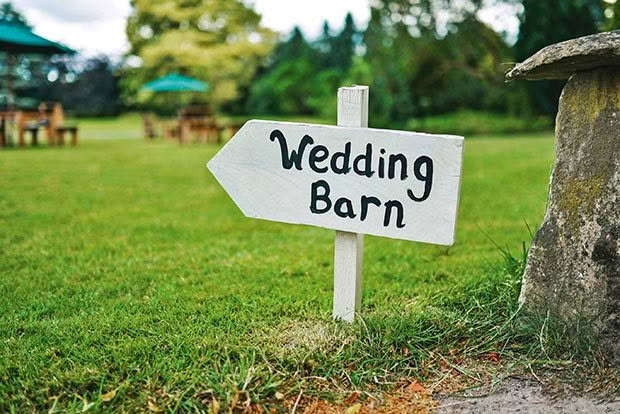
If you’re a romantic at heart, turning your land into a wedding venue might be an opportunity to earn some extra cash.
Words: Jane Wrigglesworth
Your rolling hills or disused barn just might be someone’s dream wedding site, but before you rent out your little slice of heaven, consider the pros and cons first. Nery Howard and Michael Clark own Trelawn Place at Arthur’s Point in Queenstown, a picture-perfect property that lends itself to weddings. They have a stunning view of the Shotover River and snow-capped mountains, a borrowed vista that heightens the venue’s beauty.
“We began having weddings at Trelawn 32 years ago, at requests from family and friends,” says Nery. “We soon realised there was nowhere else in a realistically priced range for ordinary couples without huge budgets, and our wedding numbers grew from that.”
While the surrounding scenery needs no additional upkeep, Nery warns that potential wedding hosts will need to keep their property in tip-top shape throughout the main wedding season.
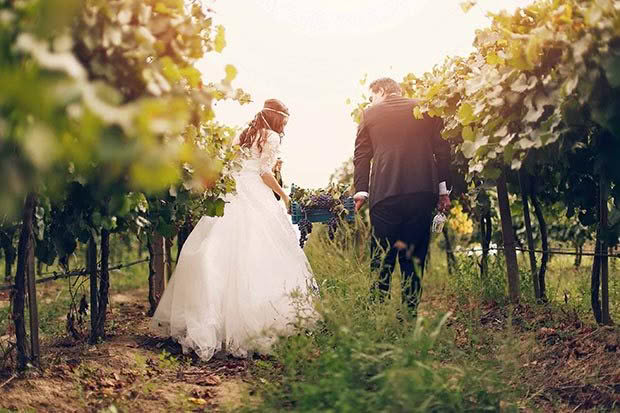
“Although we basically use the location and garden for the weddings, there is several days of preparation to make sure everything is top notch in the garden and lawn, so it’s no use thinking it’s a quick way of making money. It requires dedication to make a perfect venue and a perfect wedding.”
If you run weddings back-to-back, weekend-to-weekend, you may need to consider regular repair of the grounds too. If it’s raining one weekend and the grounds are trampled on by guests, the wedding party the following week won’t be happy if the ground is ruined.
Florist and event stylist Kim Chan of Kim Chan Events in Dunedin says there is a great opportunity for owners of larger properties to offer something different to the market.
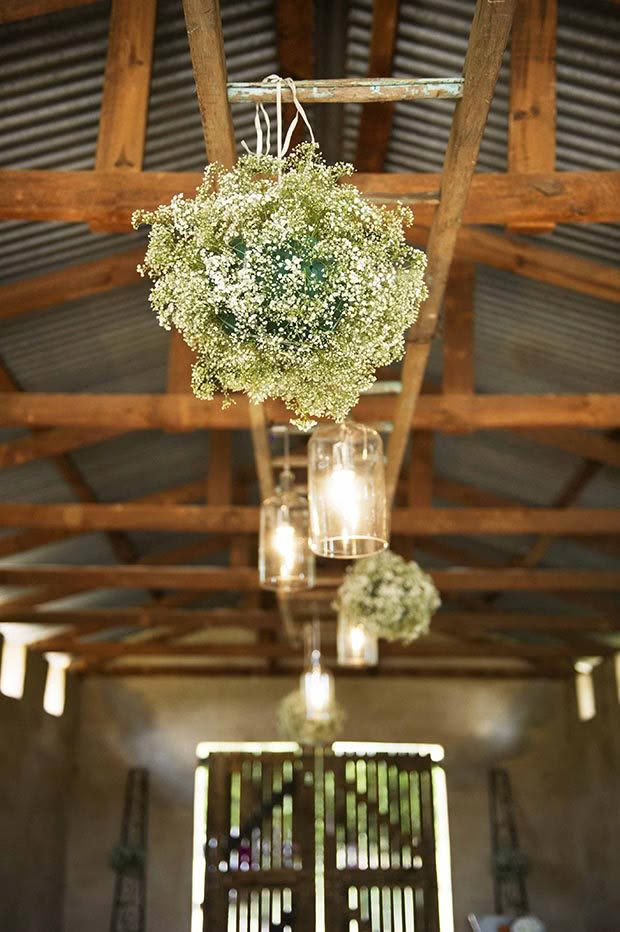
“Well-maintained venues that reflect a certain style are perfect when it comes to styling and theming, be it for a wedding, a corporate function or retreat,” she says. “Creating a beautiful ambiance within a venue – something that has the basic ‘bones’ in place, like a building or a beautiful lush garden – always ensures a ‘wow’ from visitors.”
Having several options available is also appealing, like different areas where the wedding vows or reception can be held, or different backdrops for photo opportunities.
But functionality is just as important as a pretty venue. Kim says a rain contingency site is essential, as is good parking and access. At a large wedding you may have hundreds of cars, so you need to have enough open space for guests, including catering staff and other wedding vendors to park.
If you are converting a barn, there needs to be enough electricity to accommodate lighting, music/DJs, catering set-ups, and so on. For caterers, a prep area is also handy.
The barn must be code-compliant too. There is a huge difference between legally maintaining safety standards and simply sweeping out your barn and charging hundreds or thousands of dollars for its use.
HOW TO MAKE THINGS EASIER FOR THE BRIDE & GROOM
When you’re starting out, it is easier for the bridal party to take care of hire of resources like catering, marquees and portable bathrooms themselves. But offering your own tables and chairs might be an option.
Nery and Michael offer several different wedding ‘packages’, from simple venue hire, including tables, chairs and tablecloths, power and water, gazebos, and greeting of guests on arrival, to providing the legal papers, a wedding celebrant, colour photos mounted in an album, cake, bridal bouquet, buttonholes, and bubbly for the toast.
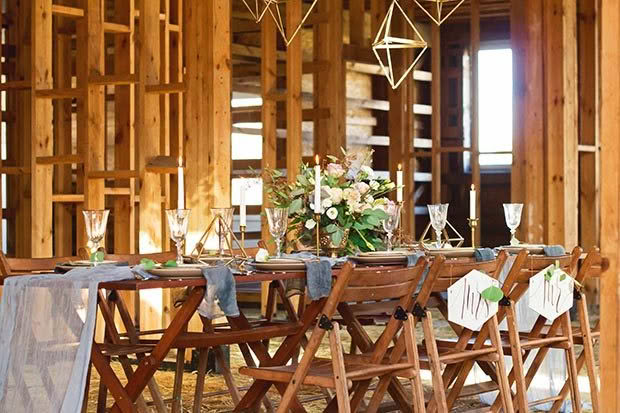
They also offer accommodation but for this, you must have council consent. At the very least you need to talk to someone about what your local zoning allows. Accommodation buildings must have consent (inspectors look at the kitchen and food handling design, accessibility, fire safety, smoke detectors, extinguishers, evacuation procedures, etc).
MARKETING
You should also know what you are marketing. If your venue is small, target groups with small guest lists and advertise the venue as intimate with a cosy atmosphere. If your venue is large, target groups who require a large-capacity venue, and advertise the number of guests you can accommodate and the entertainment aspect.
“All brides and grooms are looking for something unique, and something that is ‘them’ to celebrate their day,” says Kim. If you remain true to yourself and
reflect your own style, you will attract like-minded people.
HOW TO ADVERTISE YOUR PROPERTY
Bear in mind that millennials (people born between 1977 and 2000) are going to be your main market. That means you need to embrace social media, where they hang out and communicate. At the very least, set up a Facebook page and Instagram account where you can post pictures of your venue.
Get in touch with local wedding planners. They are often looking for new and unique venues. If your venue fits in with their ideas, they are more likely to recommend your property to their clients. They may also suggest ways to enhance your property and make it more appealing.
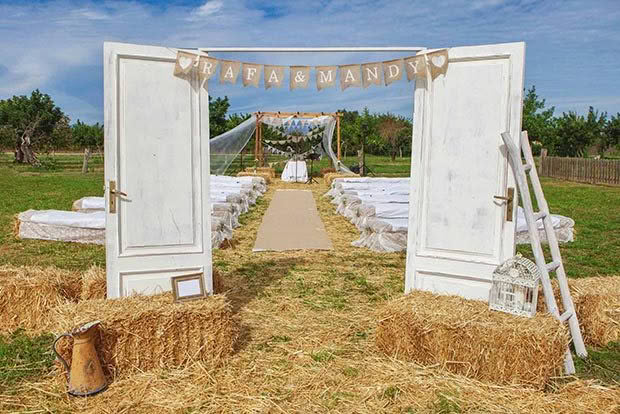
You might consider holding an ‘open home’ for wedding planners, photographers and caterers to let them know about your property. Team up with local wedding professionals so that you can work together and recommend one another. Have a professional photographer take photos of your property. Work with your team of wedding-related companies to stage your space so that new clients can see it at its full potential. Submit your photos to wedding blogs for possible inclusion.
List your property on as many online wedding sites as possible. The bride will almost always search online for a suitable venue for their big day. You could also write a guest blog for a wedding site in return for a link to your site. Remember to have fun! A fun, relaxed atmosphere always comes across and will be more appealing to potential guests.
OTHER THINGS TO CONSIDER
It’s a good idea to compile a contract or set of rules for your guests. For example, you may wish to exclude amplified music (amplified sound includes having a PA system, band, or DJ on site) or state the time at which it must end. Noise control is an important issue if you have neighbours nearby. Even if your neighbours are not right on your doorstep, sound travels, especially at night. If no amplified music is allowed, you might instead consider iPod speakers or a small stereo.
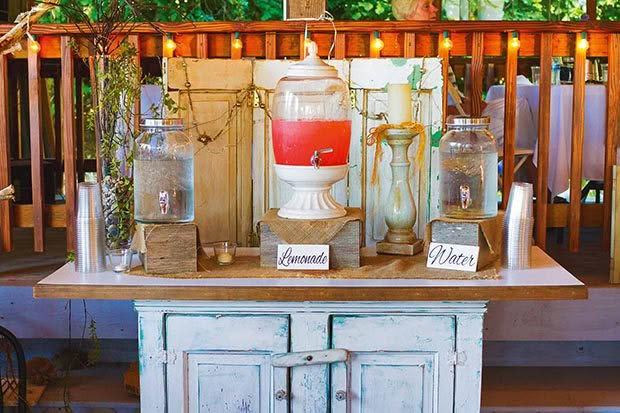
State when guests can set up their event and from what time. This may be two to three days prior to the day, for example, from say 8am. State when guests must vacate the premises. Aside from guest parking, you may wish to have a dedicated parking and work area for caterers and the bridal party. While most events are typically happy occasions, bear in mind that things can go wrong. One wedding venue provider, who did not wish to be named, said at one wedding she hosted her expensive decorations were stolen and a marquee was moved to another location without her consent, causing more than $1000 in damage. You may wish to collect a refundable damage/cleaning deposit from the clients before the wedding.
9 QUESTIONS YOU NEED TO ASK YOURSELF BEFORE YOU START
Location, access, parking, road noise, access to water and power and sewerage are all things to consider at the start of the planning process.
1. Are you close to a road? If you offer a picturesque setting but there is excessive noise pollution from passing cars, guests may not be too pleased.
2. If parking is on a grassy area, consider how muddy this area will get after rain. Will a concrete or gravel area be more suitable?
3. If parking is a long way from the venue site, do you need to offer a transportation system from the parking lot to the site?
4. Do you have a rain contingency plan for the wedding?
5. Is your site accessible to disabled guests?
6. Is there room to put down a dance floor?
7. Rubbish bins and bathroom facilities are essential. If you cannot supply toilets, can guests hire mobile bathrooms from a nearby supplier?
8. Is there accommodation nearby where the bridal party and guests can stay?
9. Is there a selection of local florists, wedding planners, caterers, hire companies etc, that the bride and groom can access?
DO YOU NEED A FOOD PERMIT?
Only if cooking is done on your premises. If you do not have a commercial kitchen, the bridal party will need to hire their own caterers who will bring food prepared in their own commercial kitchen.
DO YOU NEED A SPECIAL LICENSE FOR ALCOHOL?
Only if you’re selling alcohol. You do not need a special license if you are supplying alcohol, or guests are bringing their own alcohol to a private event as long as the public can’t access the event. Most councils have very similar rules. A special license is typically not required when:
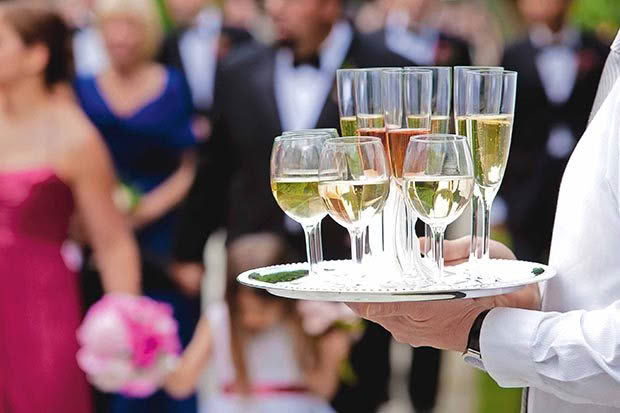
1. A customer is supplying alcohol to guests in their own private residence;
2. A customer is supplying alcohol at no cost to their guests at a wedding, birthday celebration or similar, or;
3. Guests bring alcohol to a customer’s own private residence.
DO YOU NEED A PERMIT FOR TEMPORARY STRUCTURES?
You need to apply for building consent if you are planning to erect:
• marquees over 100m²
• marquees that will be up for longer than a month
• stages, gantries or grandstands over 1.5m above ground
• structures over 2.5m such as signage, artwork or platforms
Love this story? Subscribe now!
 This article first appeared in NZ Lifestyle Block Magazine.
This article first appeared in NZ Lifestyle Block Magazine.
